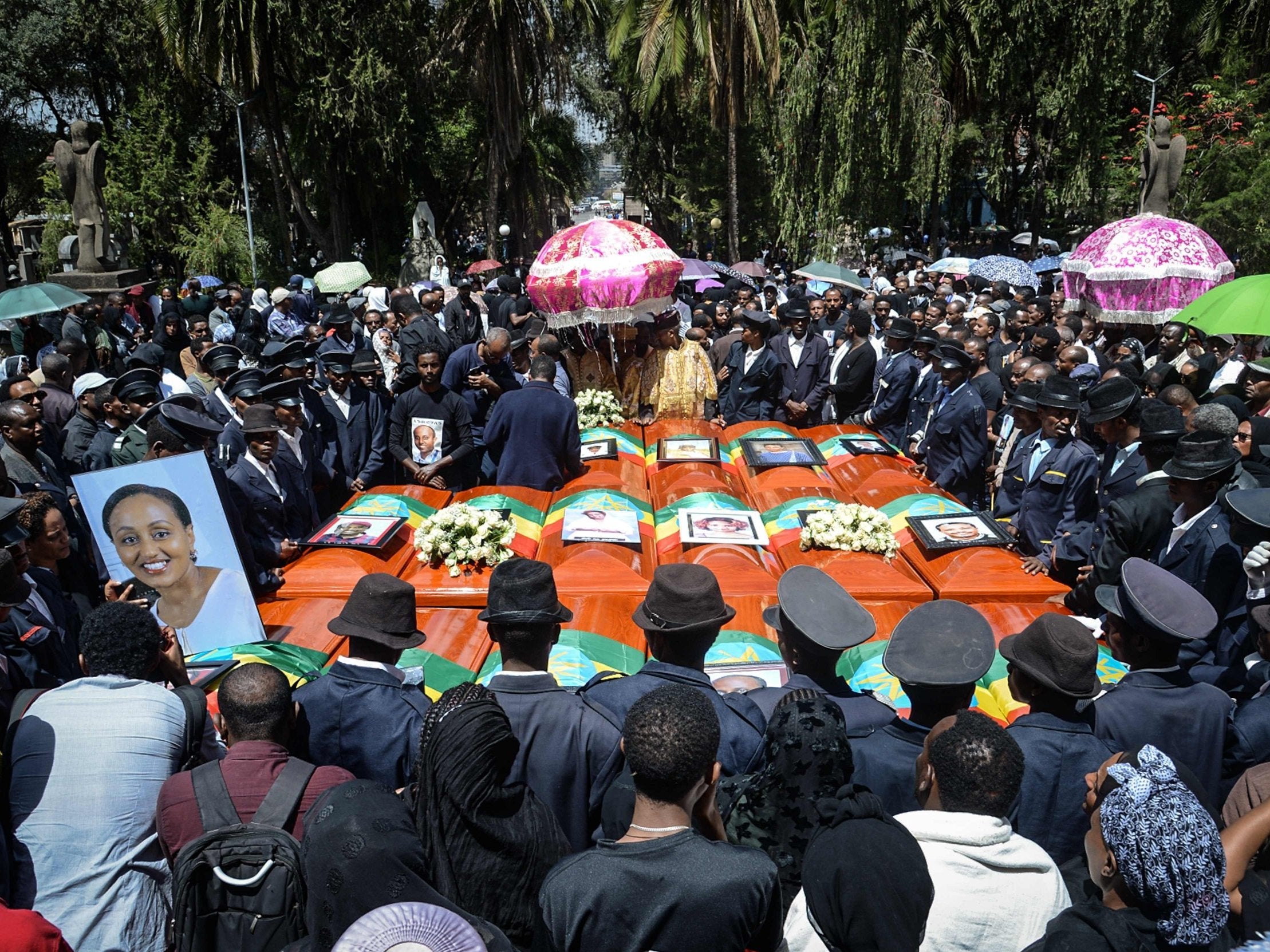Ethiopian Airlines crash: Victims' relatives 'given bags of earth to bury' in place of bodies during mass funeral
Thousands of mourners attend commemoration for 157 victims
Your support helps us to tell the story
From reproductive rights to climate change to Big Tech, The Independent is on the ground when the story is developing. Whether it's investigating the financials of Elon Musk's pro-Trump PAC or producing our latest documentary, 'The A Word', which shines a light on the American women fighting for reproductive rights, we know how important it is to parse out the facts from the messaging.
At such a critical moment in US history, we need reporters on the ground. Your donation allows us to keep sending journalists to speak to both sides of the story.
The Independent is trusted by Americans across the entire political spectrum. And unlike many other quality news outlets, we choose not to lock Americans out of our reporting and analysis with paywalls. We believe quality journalism should be available to everyone, paid for by those who can afford it.
Your support makes all the difference.A mass funeral was held for the 157 victims of a plane crash in Ethiopia after their families were given bags of earth to bury in place of their remains.
Some victims’ relatives fainted and fell to the ground during a procession through the country’s capital Addis Ababa as 17 empty coffins draped in the national flag were laid to rest in their memory.
The Sunday service came the day after officials began delivering bags containing 2.2 pounds of scorched earth taken from the crash site to the relatives of those who died.
Families have been told the identification process is expected to take a long time and could last up to six months.
An Orthodox priest dressed in a traditional black turban and black robes told the crowd gathered at Bole International Airport: “Our deep sorrow cannot bring them.”
As Ethiopian Airlines staff sobbed in each other’s arms, he added: “This is the grief of the world."
The victims on board the Boeing 737 Max 8 flight 302 came from 35 countries and included many humanitarian workers headed to the Kenyan capital, Nairobi.
The flight’s two pilots, six crew and 149 passengers all died in the crash on 10 March.
Elias Bilew said he had worked with one of the victims, Sintayehu Shafi, for the past eight years.

“He was such a good person”, he said. “He doesn’t deserve this. He was the pillar for his whole family.”
Countries around the world have grounded the Boeing 737 Max 8 and 9 planes following the crash.
The plane involved in last week’s crash was the same model as the one that crashed off Indonesia in October killing 189 people.
French investigators said that they had successfully downloaded the cockpit recorder data and had transferred it to the Ethiopian investigation team without listening to the audio files.
Work on the flight data recorder resumed Sunday but no additional details were given.
Experts from the US National Transportation Safety Board and the plane’s manufacturer Boeing are among those involved in the investigation.
The US Federal Aviation Administration said satellite-based tracking data showed that the movements of Ethiopian Airlines Flight 302 were similar to those of Lion Air Flight 610, which crashed near Indonesia.
Both incidents involved Boeing 737 Max 8 planes.
The planes in both crashes flew with erratic altitude changes that could indicate the pilots struggled to control the aircraft.
Shortly after their take-offs, both crews tried to return to the airports but crashed.
Boeing now faces the challenge of proving the jets are safe to fly amid suspicions that faulty sensors and software contributed to the two crashes that killed 346 people in less than six months.
Associated Press contributed to this report

Join our commenting forum
Join thought-provoking conversations, follow other Independent readers and see their replies
Comments